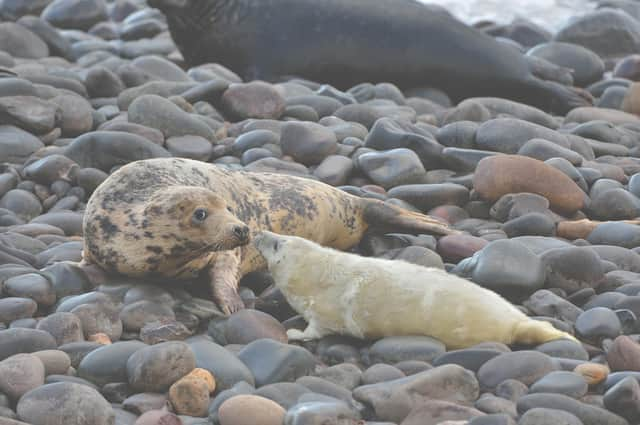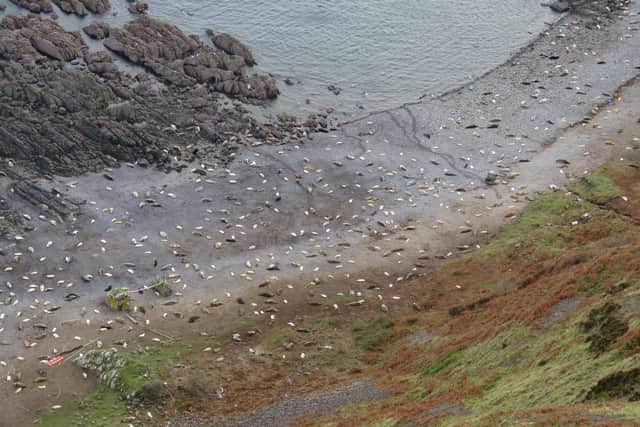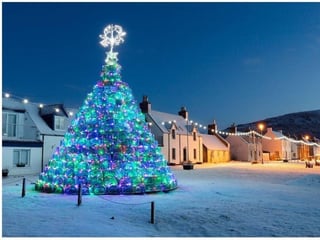Electric fence to protect 'incredible' colony of seal pups from dog walkers and selfie hunters


More than 1,800 pups have been counted at St Abb’s Head National Nature Reserve in Berwickshire during the annual breeding season.
The total has amazed rangers at the National Trust for Scotland reserve – not least because not one pup was recorded on the beach as recently as 2007.
Advertisement
Hide AdAdvertisement
Hide AdNow, steps are being taken to protect the colony with the public asked to view the seals from a distance and an electric fence now running on stretches of the coastline where the beaches are flanked by footpaths.


Ciaran Hatsell, head ranger at St Abb’s Head, said: “The fencing is essential and the area is a popular dog walking spot. In the past there have been incidents, horror stories of people picking up seals and bringing them back because they thought they were in trouble.
"We have had people putting their kids on the backs of seals for selfies, really bad stuff.
“I am on site every day and I hope that my presence can make an impact and a difference, in terms of educating people and protecting seals in the most vulnerable spots.”
Mr Hatsell described the pup population growth as an “incredible story” with further studies now planned to establish why there has been such a rapid rise in numbers.
He said: “I have worked in wildlife for some time and have been studying seal colonies for the past 10 years and I’m amazed by how this population has risen.
“Grey seals are one of the rarest seals in the world. There’s a global population of roughly 300,000 and in the UK we have around 45% of that. To have this rise here is very special and I feel very privileged to be able to count and work with these animals.
“If you go back to 2007, there was no colony here at all and the population is still growing, which shows that the ecosystem is healthy and that they have plenty of food in the area.”
Advertisement
Hide AdAdvertisement
Hide AdMr Hatsell said the seals may have come from another North Sea colony that has reached capacity with the sheltered beaches at St Abb’s providing a safe haven for the growing pups and their mothers.
The colony is expected to soon leave the beach once pupping has ended and the new arrivals have moulted their white fur.
NTS has urged the public to follow Scottish Government Covid-19 travel guidance with the public asked not to approach or disturb the animals.
Mr Hatsell said: "It really can be the difference between life and death. If females are inexperienced and are frightened by someone or something on the beach, this can cause them to flee and abandon their pups, who will then starve to death. Seals react strongly to the presence of dogs in particular, so when visiting, please keep dogs under close control at all times.”
Anyone who finds a seal on its own should call British Divers Marine Life Rescue on 01825 765546 or SSPCA on 03000999999.
